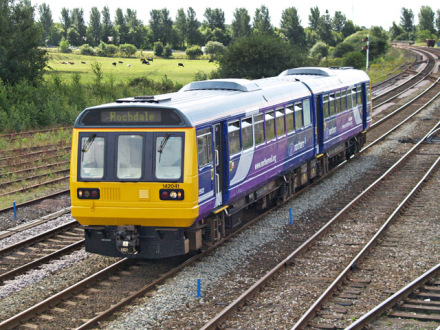
In the Labour Party’s history there are few events more important than the TUC decision, taken in September 1899, to carry a motion moved by the Amalgamated Society of Railway Servants. The proposal set out plans to “convene a special congress… to devise ways and means for securing the return of an increased number of labour members to the next parliament”. Subsequently, on 26th and 27th February 1900, the Labour Representation Committee was born. That year, two LRC-supported MPs were elected: Keir Hardie and the Railway Servants’ general secretary, Richard Bell.
Until 2004, the RMT – like its predecessors including the Railway Servants – was a Labour Party affiliate. However, after a number of Scottish branches chose to donate to the Scottish Socialist Party, the union was forced to disaffiliate. This month the RMT will vote on whether to return to the Labour fold – a decision with potential ramifications for the party and wider trade union movement.
That reaffiliation is being discussed is of little surprise. The RMT is a union constitutionally committed to “work for the supersession of the capitalist system by a socialistic order of society”, advocating not only the renationalisation of Britain’s railways but also the transformation of British society. An affiliate of the Campaign for Nuclear Disarmament and Stop the War, the union has also been at the forefront of the modern peace movement.
Both Jeremy Corbyn and John McDonnell are long-standing members of the union’s parliamentary group with the former accompanying former general secretary Bob Crow to the United States in 2007. Upon Crow’s death in 2014, Corbyn said “you can’t replace people like Bob” and lauded his refusal to “grow the union by merger and sweetheart deal” in favour of a strategy of “education, determined defence of his members’ interests and broadening the union”.
The RMT made a number of donations to Corbyn’s 2015 and 2016 leadership campaigns, and general secretary Mick Cash joked that his union had supported Corbyn and McDonnell “before it was fashionable”. Reciprocating, the shadow chancellor recently appealed directly to RMT members to support reaffiliation, suggesting that “it is important that this union has a major say on the policies that Labour will be pursuing”. Renowned for its engaged membership network and campaigning zeal, the RMT would be a potentially powerful force in keeping Labour on a leftward trajectory locally and nationally.
However, reaffiliation is far from inevitable. Within the union, the move is actively opposed both by those who wish to see the union maintain and independent political strategy – but the reaffiliation argument is dominated by the remnants of the Trade Union and Socialist Coalition. As TUSC’s largest financial backer, the small but vocal Socialist Party faction within the union have a keen interest in confusing the reaffiliation debate and blocking any move to bring the RMT closer to the mainstream of the labour movement.
Some within Labour have expressed concern over the RMT’s perceived militancy. The union’s robust industrial strategy repeatedly brought it into conflict with the last Labour government, which assistant general secretary Steve Hedley recently described as “practically indistinguishable from the Tories”.
The concerns of New Labour loyalists have not been eased by ongoing disputes between the union and Labour in Merseyside, where the Labour-controlled Mersey Travel authority has proposed removing guards from Merseyrail trains and moving to driver-only operations (DOO). During several rounds of industrial action, the RMT have posited that not only would this lead to job losses, but also undermine critical safety standards.
Perhaps more important is the RMT’s strident Euroscepticism. In the run up to the 2016 referendum, the union argued that the EU suffered from a “business-led mania for privatisation” and was “developing a new policy framework to attack trade union rights, collective bargaining, job protections and wages”. Since then, the union’s tone hasn’t softened and in 2017 it was – along with the CWU – one of just two unions to advocate terminating freedom of movement at the TUC Congress. With decisions on the party’s policy towards future customs arrangements still to be made, some Europhiles may question whether the RMT’s contribution will be entirely positive.
The RMT’s historic contribution to Labour is undeniable, and the argument for welcoming reaffiliation is pragmatic as well as romantic. Reaffiliation would bring the voices of over 80,000 members back into the party. The RMT have exemplary experience in campaigning and intimate knowledge of critical industries that must be controlled under a future Corbyn-led administration. Crucially, as the largest standalone transport union, reaffiliation would enable the RMT’s voice to heard alongside those of the TSSA and Aslef.
The RMT is rightly renowned as an organisation whose influence outweighs its size – its critics within Labour are aware of this fact, as are its opponents in the business world. As a leading industrial union, its potential contribution to shaping Labour’s strategy in the years ahead cannot be understated.
Jack Taylor is a trade union official and Labour Party member in south London.




More from LabourList
SPONSORED: ‘Industrial hemp and the challenge of turning Labour’s priorities into practice’
‘A day is a long time in politics, so we need ‘action this day’’
Strong support for child social media ban among Labour members, poll reveals